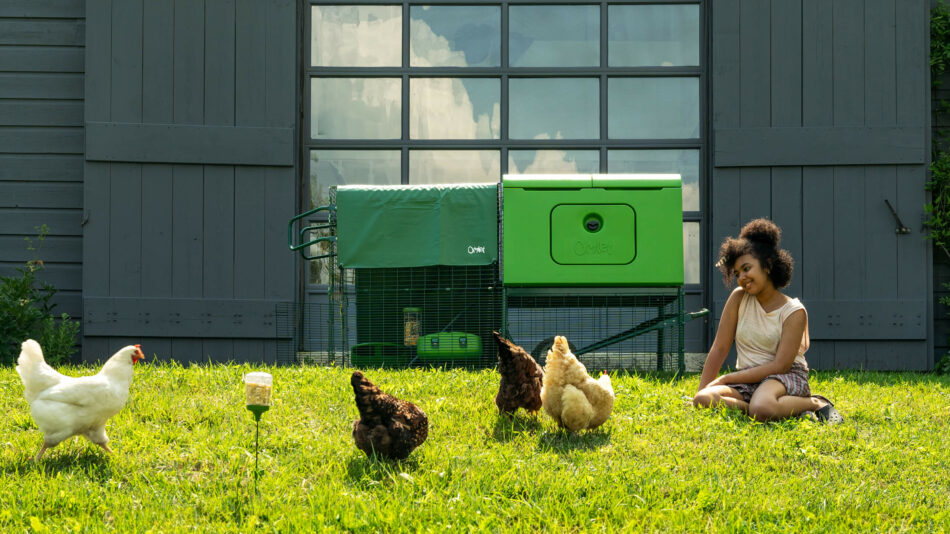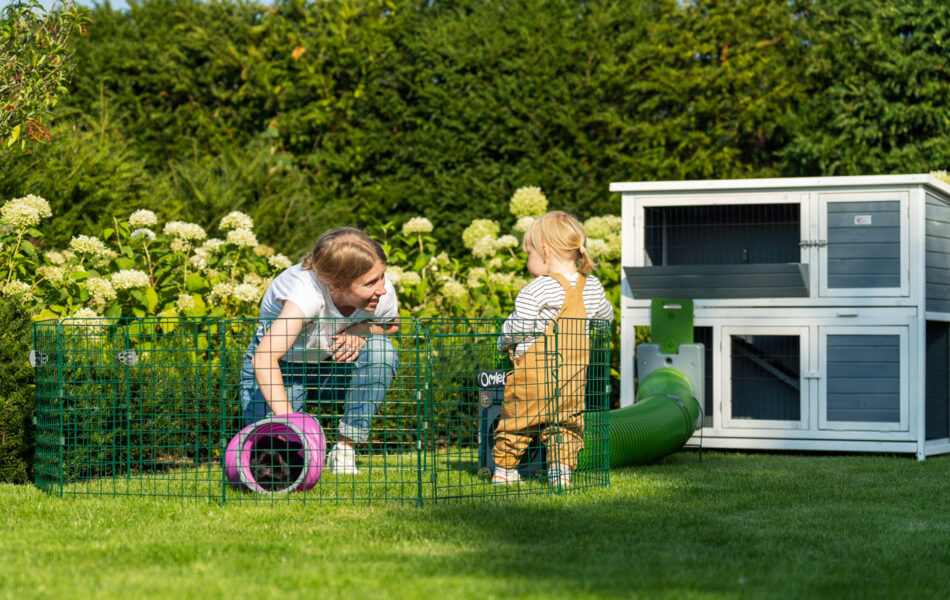Backyard pets and plants: tips for successful gardening with animals
Backyard pets and plants can be a surprisingly beneficial pairing. You don’t have to give up beautiful plants or crops in order to keep pets in your backyard. In fact, your pets can add to the beauty and efficiency of your backyard garden. Here are some tips for successful gardening with animals.
Pets that power plants
Pets can not only live peacefully among your plants, but can actually benefit your garden in surprising ways. Here are some of the most beneficial backyard pets for gardens:
- Chickens
- Rabbits
- Guinea Pigs
These pets provide “fertilizer gold” for your plants in the form of manure. In fact, serious gardeners will often pay for bags of chicken or rabbit manure to add into their compost piles. Guinea pig droppings are similar in composition to rabbit manure, making them another excellent choice for fertilizer. Chickens have the added benefit of providing pest control, and will happily eradicate your plants of any insects they can find.
Dogs can also benefit a garden by keeping wild rabbits, birds, or other wildlife at bay. Your dog doesn’t have to be cross-trained as a scarecrow — their scent alone will help to deter other animals. But in order for your pets to benefit your plants in a safe and effective way, you’ll need to make the necessary arrangements.
Separate places for pets and plants
Successfully keeping plants and pets healthy and happy comes from careful planning. Your backyard garden will flourish and your pets will thrive when they’re provided their own respective areas. Each pet species has their own needs to keep them safe in your garden, but with the right setup, you and your pets can enjoy a mutual backyard hobby.
Chickens and your garden
Chickens play a vital part in pest control, as well as plant nutrition thanks to their nitrogen-rich droppings. However, chickens will also happily devour a variety of plants, especially those with flowers or fruit. Because of this, you’ll need to make sure that your chickens have their own space in a chicken coop and run, and opt for chicken fencing to keep your chickens away from tempting plants while they’re out free-ranging. Chickens will also gladly turn your compost pile for you, so consider keeping your kitchen scraps and chicken-safe fertilizer in their fenced area for your flock to maintain.
Rabbits and guinea pigs in your garden
Rabbits have earned a harsh reputation among gardeners. While rabbits do enjoy nibbling on vegetation, they can be very helpful gardening assistants. In addition to their manure being top-notch fertilizer for plants, they will happily chew wayward grass or unwanted plants like dandelions or clover. The trick is to contain them to specified areas through strategic placement of their rabbit hutch and run or rabbit playpens. By placing your rabbits’ area alongside unwanted vegetation, or overgrown areas that need to be kept in check, your pets will happily perform your pruning duties for you.
Guinea pigs are very similar to rabbits, in that they will happily nibble on vegetation of all varieties. But due to their short stature and inability to jump, they’re much easier on your garden plants. Consider creating guinea pig-approved areas in your garden through the use of Zippi Guinea Pig Tunnels and Zippi Guinea Pig Playpens. Your cavies will clear ground crops and weeds, and any low-hanging vegetation that needs trimming.
Dogs and your garden
Dogs might not offer as much paws-on help in the garden as other pets, but they can keep you company and deter unwanted visitors like wild rabbits or birds. Not all dogs will dig in your garden, but to prevent unwanted holes and displaced mulch or decorations, consider using barrier fencing to prevent your pup from disturbing your landscaping.
Beware of toxins
Not all plants are safe for animals, especially those that may be tempted to sneak a taste like chickens, rabbits, and guinea pigs. Make sure that your garden contains pet-safe plants. Some plants that are toxic to rabbits, guinea pigs and dogs may not be toxic to chickens. Common garden plants that are toxic to all animals include:
- Azaleas
- Daffodils
- Lilies
- Rhododendrons
- Oleanders
- Tulips
- Yews
This is not an exhaustive list, so be sure to correctly identify and label each plant that is found in your garden to ensure your pets’ safety. If your garden contains plants that are toxic to pets, you’ll need to remove it from the roots.
Also be mindful of fertilizers, pesticides, and weed killers that you may use in your garden. Natural forms of these should state their safety for pets and people, but as a general rule of thumb, all chemical pesticides or weed killers should be considered toxic to your animals. Fertilizers that contain weed inhibitors or other chemicals should not be used around pets.
Omlet and your backyard pets
Gardening is meant to be a leisurely pastime, and we believe that pets can be a part of the experience. With chicken fencing, small animal playpens, and large outdoor pet runs, you can combine your love of plants and pets with ease. Create a peaceful outdoor oasis with your pets when you pair your garden with our ingenious outdoor animal-keeping products.
This entry was posted in Pets


